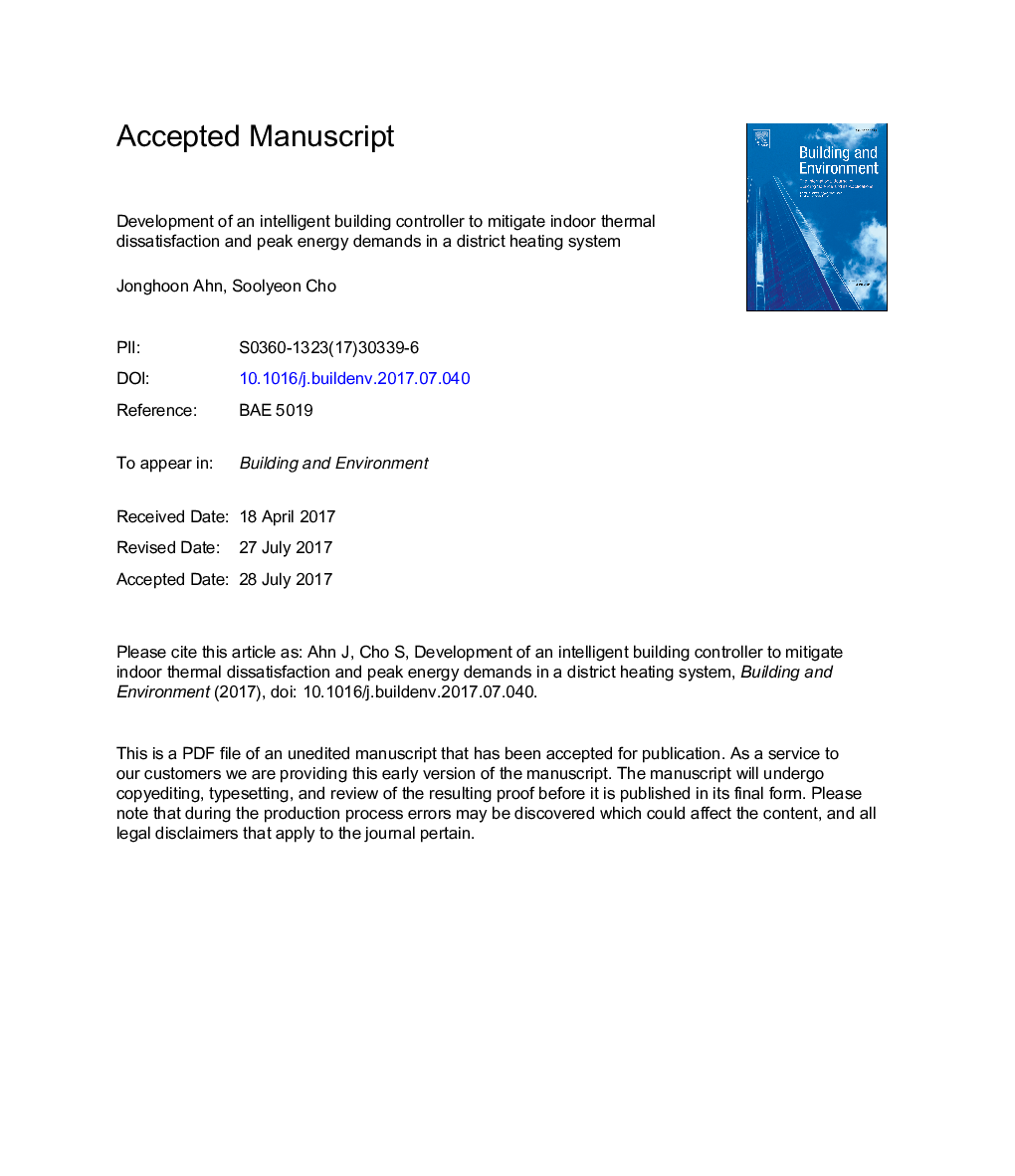| Article ID | Journal | Published Year | Pages | File Type |
|---|---|---|---|---|
| 4911405 | Building and Environment | 2017 | 16 Pages |
Abstract
This research proposes an intelligent controller to improve thermal comfort and reduce peak energy demands in a district heating system. An artificial intelligence based model with temperature and thermal comfort detectors optimizes supply air conditions to maintain desired room temperature responding to users' characteristics in four different building types. The model reduces peak demands for cooling and heating to optimize plant and distribution capacity. Comparative analyses describe the model's effectiveness that it improves thermal comfort level by 27%, and that it reduces peak energy demands by 30% in comparison with a conventional on/off controller. The model has an advantage that it properly responds to temperature changes with high performance to mitigate thermal dissatisfaction and energy loss. In spite of the sensitive controls to ensure human comfort, it is confirmed that the model can contribute to design optimization for energy supply systems in urban scaled models.
Related Topics
Physical Sciences and Engineering
Energy
Renewable Energy, Sustainability and the Environment
Authors
Jonghoon Ahn, Soolyeon Cho,
